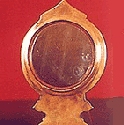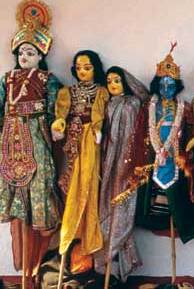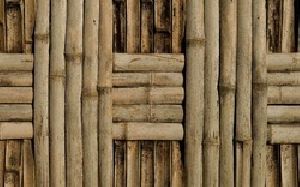An unusual and unique product, this metal mirror, a product of Aranmula in the district of Pathanamthitta near Chengannur in Kerala, is made out of an alloy of copper and tin. The polished face of the vaalkannadi or hand held mirrors with cast bronze frames metal not only resembles glass but also has the same ability to reflect images clearly. This product is crafted by unique metal artisans who retain, till today, the secret art of obtaining a mirror-like reflection out of the metal. This reflection formed in the Aranmula kannadi does not undergo any refraction unlike image produced in common mercury-coated glass mirrors. Mud from the local paddy fields is used to make the mould. To cast the mirror the technique followed is the ciré-perdue or lost wax method of casting. The tools used are basic and range from Iron tongs, Files, Hammers, Chisels and fine emery paper. The metal mirror is then given a coating of metallic powder mixed with special oil. The artisan then laboriously rubs the metal with a hessian cloth or soft velvet fabric over several days. Due to the arduous labour required in the casting process, a craftsman may make a maximum of 20 mirrors during a month. The artisans are said to have stumbled on this technique while they were making a crown for their deity. The temple chief was so delighted with this mirror that he included it among the eight auspicious items used in worship in the temple and the deity has ever since been known as the ‘idol of the mirror’. Generations of this family of highly specialized goldsmiths have been using the lost wax process to cast these metal kannadi mirrors since then. The mirrors were used by royalty and in rituals related to the temple. Due to high cost the traditional bronze cast frame has been replaced with brass frames with stands. The products produced include the traditional Cheppukannadi – box mirror, the Kunkumacheppur-mirror attached to a vermillion container, Vaal kannadi – mirror with a handle and differently sized and shaped mirrors, usually with stands.


